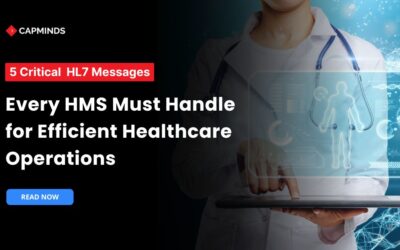COVID-19 Uncover Need for Interoperability
There are a lot of things that changed in the healthcare industry related to technology and software updates when dealing with this pandemic. For years the healthcare providers, patients, and also payers have done more about improving interoperability. Today, some additional steps and strategies have been done to allow providers and patients to share data seamlessly in their EHR, practice management software, and also with other systems for better care.
For year’s healthcare providers, patients, policymakers, and payers have all talked about the importance of interoperability and integration, but little has been done to take concrete steps to allow providers and patients to share data seamlessly in their practice management software system, and also with other systems, for better care. In the wake of COVID-19, that conversation has renewed urgency.
Why Interoperability In Healthcare Matters?
Data integration and interoperability are progressively significant, particularly as patients begin to assume greater responsibility for their own healthcare choices.
Patients are progressively “looking” for new providers where they can improve care or lower costs
Numerous patients see more than one provider, particularly those with an intricate or constant medical issue, and these providers are not generally in a similar healthcare system.
Healthcare providers should have the option to organize care along with the whole range of the healthcare system— primary care, specialty care, pharmacists, long-term care facilities, healthcare practices, and other access points to avoid clinical errors.
Planning data and information is likewise fundamental when the following pandemic hits, regardless of whether it’s not on a similar scale as the current COVID-19 emergency. Numerous general healthcare specialists, irresistible sickness specialists, and infectious disease experts, and epidemiologists concur that it is anything but an issue of “if” this happens once more, however “when” and “how awful” it will be the following time.
RELATED: WHY API-LED INTEROPERABILITY SHOULD BE YOUR FIRST FOCUS?
Overcoming The Challenges With Interoperability
Integrate Systems Within Your Practice:
Information stream inside your center ought to be pretty much as consistent as could be expected, and one of the approaches to guarantee that is to have completely incorporated practice management software within your healthcare practice. An end-to-end solution permits everybody in your group to flawlessly share data from the primary communication of a patient with your facility (planning) to the last interaction from each encounter (medical billing and claims processing).
Permit Patients Access To Their Data
Another way clinics can assist with information sharing is by offering patients a simple method to get to their full clinical records from any place. A high-level patient entry can give patients admittance to all that is in your EHR—lab results, tests, clinical history, past tests, specialists’ notes, and then some. Patients can quickly download and share the data with other providers if they go outside your system for care.
Take An Interest In HIE
Discover how you can take an interest in health information exchanges (HIEs) in your state or region. You send information from your practice management system and EHR to an enormous, interconnected data set, and different suppliers can find that data. In this way, for instance, if a patient goes to an emergency clinic close by, the medical clinic can discover data about that individual’s seasonal flu shot, last mammogram, and recent medical diagnoses that may affect their care
Get Started With CapMinds
Talk with our experts today to find out how you can successfully integrate your medical practice software systems and take actionable steps towards healthcare information sharing and access for the future.




